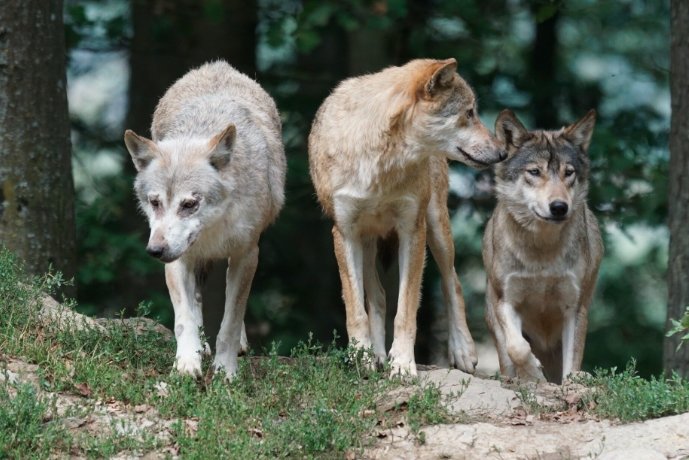Colorado Parks and Wildlife (CPW) has announced the relocation of a wolf pack following a series of livestock attacks in Delta County. The decision comes after the Copper Creek pack, which includes two adult wolves and their pups, was implicated in multiple incidents of livestock depredation. This move is part of CPW’s efforts to balance the reintroduction of wolves with the protection of local ranchers’ livelihoods. The relocation aims to mitigate conflicts and ensure the continued success of the wolf reintroduction program.
The Relocation Decision
The decision to relocate the Copper Creek pack was not taken lightly. CPW officials have been monitoring the pack closely since its formation under the state’s ambitious wolf reintroduction program. The pack, which was released in December 2023, has been responsible for several attacks on livestock, including sheep and cattle. These incidents have raised concerns among local ranchers and prompted calls for action.
CPW Director Jeff Davis emphasized that the relocation is a unique case and not a precedent for future wolf-livestock conflicts. The agency considered various factors and stakeholder feedback before making the decision. The goal is to move the pack to a location where they can continue to contribute to the restoration of wolves in Colorado without posing a threat to livestock.

The relocation process involves capturing the wolves and transporting them to a new area. CPW has not disclosed the exact location for the relocation, citing the need to protect both the wolves and the staff involved in the operation. The agency is working in conjunction with the U.S. Fish and Wildlife Service to ensure the relocation is carried out safely and effectively.
Impact on Local Ranchers
The relocation of the Copper Creek pack has been met with mixed reactions from local ranchers. While some see it as a necessary step to protect their livestock, others are concerned about the long-term implications of the wolf reintroduction program. Ranchers have reported significant losses due to wolf attacks, and there is a growing sense of frustration and anxiety within the community.
Ranching groups have called for more robust measures to prevent wolf attacks, including the use of electric fencing and other deterrents. They argue that relocation alone is not enough to address the underlying issues and that more needs to be done to support ranchers who are affected by wolf depredation. The financial impact of livestock losses can be devastating, and ranchers are seeking assurances that their livelihoods will be protected.
CPW has acknowledged these concerns and is working to provide support to affected ranchers. The agency has hired predator damage conflict specialists to focus on wolf-related issues and to assist ranchers in implementing preventive measures. CPW is also exploring compensation programs to help offset the financial losses incurred by livestock depredation.
Future of Wolf Reintroduction
The relocation of the Copper Creek pack highlights the challenges and complexities of the wolf reintroduction program. While the program aims to restore a species that was once native to Colorado, it also requires careful management to balance the interests of wildlife conservation and local communities. The success of the program depends on finding sustainable solutions to mitigate conflicts and ensure the coexistence of wolves and livestock.
CPW remains committed to the reintroduction effort and plans to release more wolves in the coming months. The agency is actively seeking new sources of wolves to bolster the population and enhance genetic diversity. Despite the setbacks, CPW officials are optimistic about the long-term prospects of the program and believe that with continued effort and collaboration, it can achieve its goals.
Public education and outreach are also key components of the reintroduction strategy. CPW is working to raise awareness about the ecological benefits of wolves and to foster a greater understanding of the challenges involved in their reintroduction. By engaging with local communities and stakeholders, the agency hopes to build support for the program and promote coexistence between wolves and humans.













